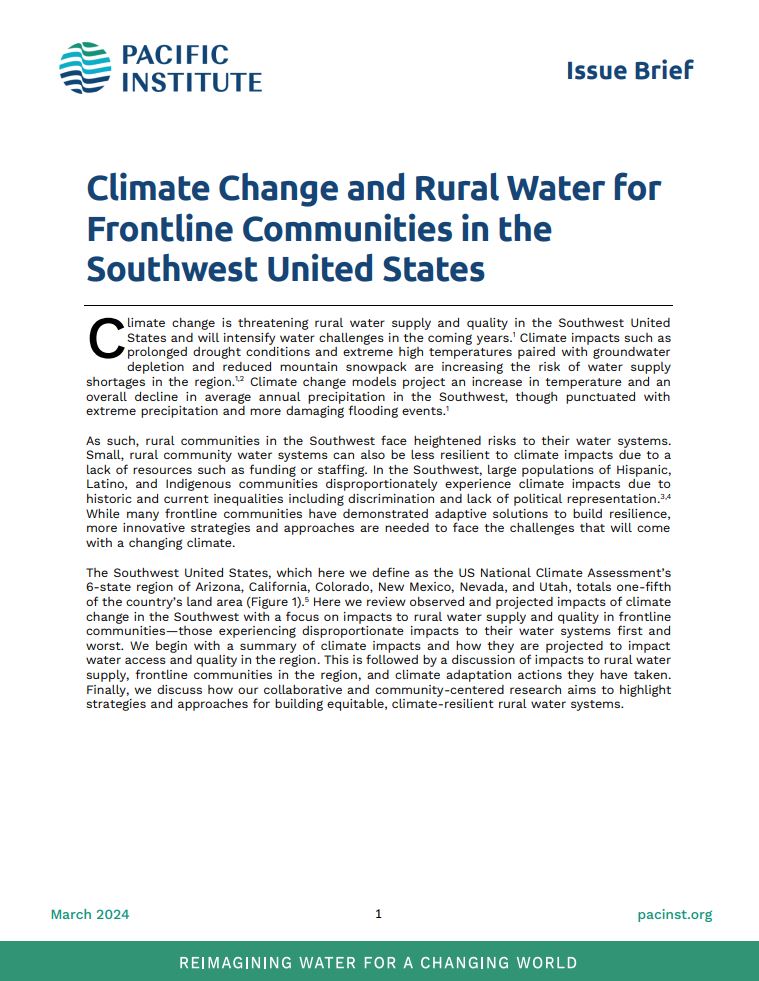Climate Change and Rural Water for Frontline Communities in the Southwest United States

Climate Change and Rural Water for Frontline Communities in the Southwest United States
Overview
This issue brief provides an overview of the escalating threat climate change poses to rural water for frontline communities in the Southwest United States. This region, defined by the US National Climate Assessment’s 6-state area (Arizona, California, Colorado, New Mexico, Nevada, and Utah), is facing increasing water challenges due to prolonged droughts, extreme temperatures, groundwater depletion, wildfire, flooding, and reduced mountain snowpack. The brief delves into the observed and projected impacts of climate change, emphasizing the disproportionate risks faced by Latino, Hispanic, and Indigenous populations in these areas. Through this issue brief, the authors also aim to highlight the need for innovative strategies and approaches necessary to build equitable, climate-resilient rural water systems.
Key Findings
Key takeaways from the issue brief include:
- Escalating Climate Risks: The US Southwest is already experiencing deep and persistent drought, extreme heat, catastrophic flooding, and wildfires, jeopardizing water access and quality, and this is expected to continue well into the future.
- Disproportionate Impact on Rural Frontline Communities: Hispanic, Latino, and Indigenous populations across the Southwest face inordinate risk of climate change threats to their water systems.
- Observations and Future Impacts: Climate change is making the already arid US Southwest drier through increases in precipitation variability and extremes with significant effects on stream flows and water levels in lakes and reservoirs.
- Regional Climate Impacts on Rural Water Supply: The complex water infrastructure of the arid Southwest, heavily reliant on reservoirs and snowmelt, faces challenges from declining snowpack and increased evaporation.
- Existing Climate Preparedness and Response Actions: Actions such as water efficiency solutions and improved water governance are already being implemented to address rural water problems in the face of future climate changes.
- Innovative Climate Actions and Partnerships: The brief highlights the importance of partnerships and community-driven strategies to enhance climate resilience in rural water systems.

